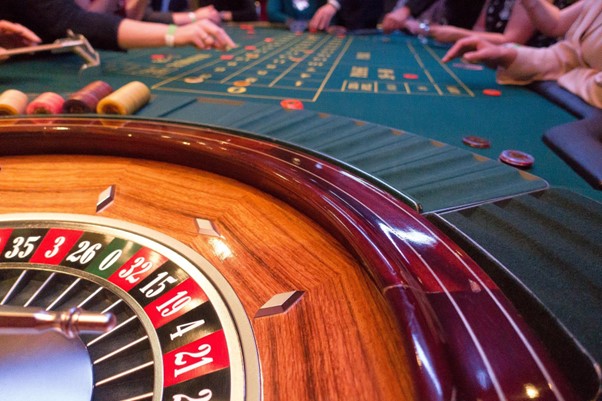
Source: Pixabay
Betting and gambling have existed for thousands of years in countless forms, from betting on who will be the winner in a life or death battle, to primitive dice games. However, it was the arrival of the casinos that truly institutionalized these activities, allowing the most popular games today to have rules that are well known to all and which can also exist in different places in a legal and regulated manner.
Early Beginnings
It would be almost impossible to define when betting actually began, but the first records of games of chance date back to China in 2300 BC, as Chinese tiles from these years refer to bets and games of chance of that time. Although sports betting and games of chance were popular hobbies for all civilizations throughout history, no particular building had ever been designated for this activity until 1638, when the City Council of Venice founded the (still existing) Casino di Venezia so that all activities in this area were performed in an organized manner via regulations. Between the 18th and 19th centuries there was a boom in casinos in Europe and the construction of several of these establishments in several German cities and in the city of Monte Carlo, where the extravagance and luxury of its casinos quickly made it the capital world of gambling and betting.
The City of Sin
So, how did Las Vegas, an oasis in the middle of the American desert, manage to become the center of gambling, poker, blackjack and sports betting in the world? Well, at the beginning of the 20th century and despite the North American prohibitions on alcohol consumption and gambling, you could find casinos and taverns in the most unimaginable places where the people of the city of Las Vegas would go after work. When the bans were lifted, Las Vegas was already the center of all these activities, which gave the gaming industry in this area a strong advantage. The first legal casino in Las Vegas was established in 1941 and it became instantly famous as it had a hotel, swimming pool and a wide variety of gambling and slot machines.
Modern Days
As a complement to the game rooms around 1950, musical activity was incorporated into the offer, then theatrical activity, and the circus has now been incorporated as well. The famous Cirque du Soleil has regular shows in Las Vegas. At the end of the 20th century, and after the casinos’ turbulent history and clashes with mafias and gangsters, the focus of Las Vegas casinos changed. Casinos on the Strip were bought by industry tycoons and converted into incredible, multimillion dollar gaming complexes we know today as mega-casinos, whose luxuries far outstripped the traditional establishments and would quickly become the symbol of Las Vegas. The rest, of course, is history.
Online Casinos
Since the Internet connection became available to almost everyone at the beginning of the 21st century, many developments and innovations have vastly expanded the diversity of activities and services offered virtually. One of them is gambling and sports betting, whose number of users grows faster every year due to the great convenience of playing and betting remotely. Gambling and sports betting is a well-studied and interesting sociological phenomenon that has been observed in many cultures throughout human history. As the very expression of humanity, its manifestations have evolved along with the particular events of each culture and country. And the best thing is that now you don´t even have to move from your sofa in order to place a bet or play you favorite game of chance. For instance, at the best online roulette for Arab gamblers in 2022, you can play American Roulette from a few dollars or enjoy European Roulette with a lower house edge. You will only find safe and trusted roulette sites and you even have the possibility to play for free with bonuses to learn the ropes and then join top sites to play for real money.
In conclusion, nowadays the industry of games of chance is one of the most thriving, but we will have to see what the future holds for humanity to know how casinos will adapt to the new realities that will come.